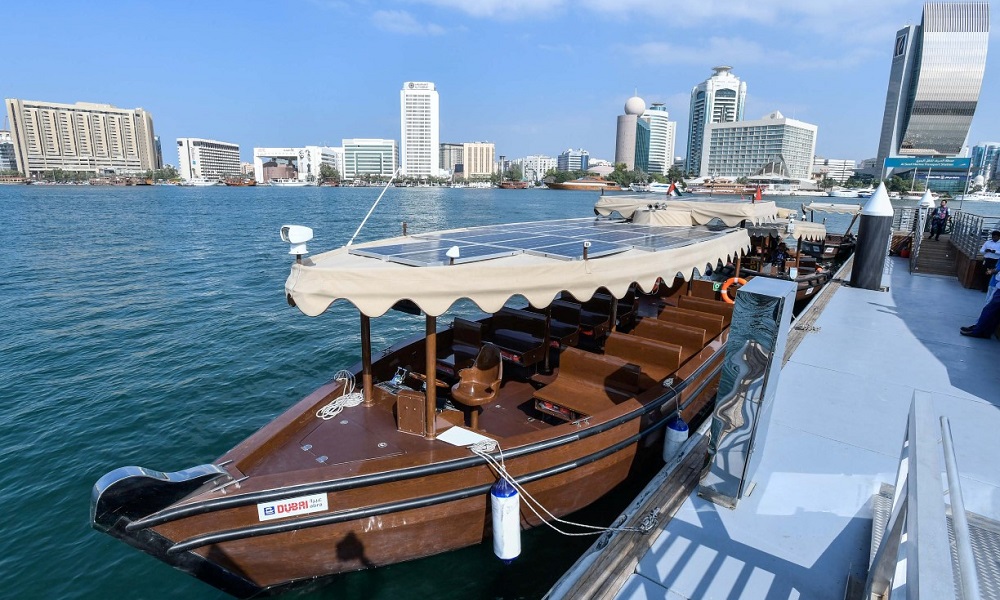Mattar Al Tayer, the director-General and chairman of the Board of Executive Directors of the Roads and Transport Authority (RTA) has formally launched the testing of Dubai’s first hybrid abra.
The shallow hulled boats have ferried Dubai residents across the city’s creek for centuries and the latest addition to the transport fleet preserves the authentic design and features of the traditional abra.
The new abra has a capacity for 20 riders and is powered by a 20KW electric motor. Despite the the addition of 26 Lead Crystal Batteries, solar energy panels and a standby generator to recharge batteries when running low in power, the boat is lighter weight, thanks to the use of cutting-edge technology, according to the RTA.
It is also fitted with an automated firefighting system that activates when batteries are overheated, as well as a battery ventilation and cooling system. Commuters crossing the Dubai Creek can also use the onboard USB ports for recharging cell phones.
The hybrid vessel’s low carbon emissions are 87% lower than its petrol-powered counterparts and reduces fuel consumption by 172%, saving approximately 134% in fuel costs. The RTA estimates that its operational and maintenance costs are 83% lower and reduces the noise level to the minimum.
The Hybrid Abra will be operated on a trial base on Al Seef-Al Ghubaiba line; one of the key marine transit lines linking four stations (Al Seef, Baniyas, Dubai Old Souq, and Al Ghubaiba). The fare will be AED2 only for transiting between two stations, confirmed the RTA.
“The trial run of the Hybrid Abra supports the Green Economy for Sustainable Development initiative. The step is in line with the Dubai Integrated Energy Strategy 2030, Dubai Plan 2021, and the UAE Vision 2021. It is also compatible with RTAs Master Plan for leveraging marine transport in Dubai which is used by 13 million riders per annum,” Al Tayer noted.
Al Tayer added that 11 new marine transit stations in Dubai are planned to be installed by 2018-2020; taking the number of marine transport stations to 58 in Dubai by 2020. It also encompasses the manufacturing of 11 boats to bring the total number to 61 boats by 2020. New lines will be opened on Dubai Creek, Jumeirah beach, new islands, and the Dubai Water Canal as well as the Ferry service between Dubai and Sharjah, he elaborated.



